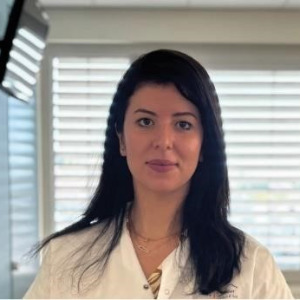Trials Design & Innovation
Clinical research is the foundation of progress in oncology, enabling the translation of laboratory discoveries into effective treatments for patients. The landscape of cancer research is rapidly evolving through Trials Design & Innovation, which focus on improving the efficiency, inclusivity, and precision of clinical studies. Traditional trial models often face challenges such as lengthy timelines, high costs, and limited patient diversity. In response, researchers are adopting adaptive and platform trial designs that allow real-time data analysis and flexible study structures. These innovations enable faster evaluation of multiple therapies, biomarker-driven patient selection, and seamless integration of emerging scientific insights. Such modernized approaches are critical to accelerating the development of targeted therapies, immunotherapies, and combination regimens in oncology.
The future of Trials Design & Innovation lies in the fusion of digital technologies, artificial intelligence, and real-world evidence to create smarter, patient-centered research ecosystems. Virtual and decentralized trials are expanding participation by reducing geographic and logistical barriers, while data-sharing platforms enhance collaboration between academic institutions, industry, and regulators. Advanced analytics are improving patient stratification and outcome prediction, allowing for more precise trial endpoints and robust conclusions. As cancer research becomes increasingly multidisciplinary, these innovative trial designs are paving the way for faster approvals, more efficient drug development, and personalized treatment strategies that reflect the diversity and complexity of real-world patient populations.

Rajvir Dahiya
University of California San Francisco, United States
Atif A Ahmed
University of Washington-Seattle Children’s Hospital, United States
Thomas J Webster
Northeastern University, United States
Paulo Cesar De Morais
Catholic University of Brasilia, Brazil
Allen Chen
Olympic Medical Center, United States
Shilpa S Dhar
UT MD Anderson Cancer Center, United States



Title : A novel blood-based mRNA genomics technology for cancer diagnosis and treatment
Rajvir Dahiya, University of California San Francisco, United States
Title : Nanomedicine in humans: 30 years of fighting diseases
Thomas J Webster, Northeastern University, United States
Title : Diagnosis and treatment of primary cardiac lymphoma in an immunocompetent 27-year-old man
Moataz Taha Mahmoud Abdelsalam, Madinah Cardiac Center, Saudi Arabia
Title : tRNA-derived fragment 3′tRF-AlaAGC modulates cell chemoresistance and M2 macrophage polarization via binding to TRADD in breast cancer
Feng Yan, The Affiliated Cancer Hospital of Nanjing Medical University, China
Title : Multiplexed biosensor detection of cancer biomarkers
Michael Thompson, University of Toronto, Canada
Title : Personalized and Precision Medicine (PPM) through the view of biodesign-inspired translational research: An option for clinical oncologists, caregivers, and consumers to realize the potential of genomics-informed care to secure human biosafety
Sergey Suchkov, N.D. Zelinskii Institute for Organic Chemistry of the Russian Academy of Sciences, Russian Federation